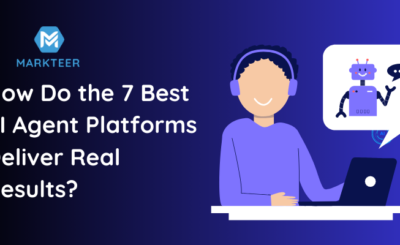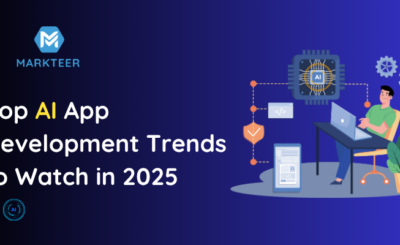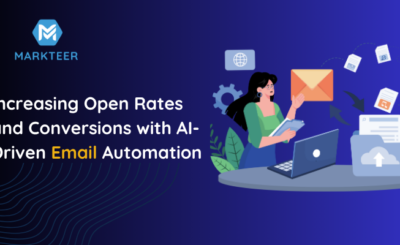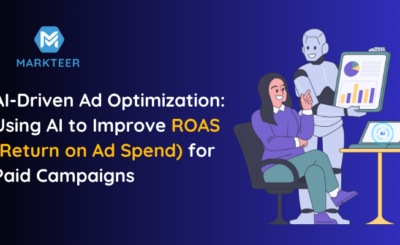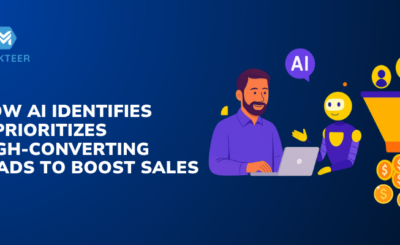In today’s digital-first world, generic marketing strategies no longer cut through the noise. Modern consumers expect brands to understand their individual needs and tailor messages accordingly. This growing expectation has made personalized marketing a strategic necessity.
Enter Artificial Intelligence (AI)—a game-changer that enables hyper-personalized marketing campaigns through data-driven insights, real-time personalization, and intelligent customer segmentation. As customer data multiplies across platforms, AI ensures marketers can turn information into meaningful, profitable actions.
What is Personalized Marketing, and Why Does It Matter More Than Ever?
Personalized marketing involves delivering content, offers, and communication tailored to individual customer behaviors, preferences, and past interactions. The difference today is scale and intelligence.
According to a McKinsey report, 71% of consumers expect companies to deliver personalized interactions, and 76% get frustrated when this doesn’t happen (McKinsey, 2021).
The importance of this can’t be overstated — personalization doesn’t just enhance the customer experience; it boosts business performance. Brands using advanced personalization strategies see 5 to 8 times the ROI on their marketing spend.
Overview of the Marketing Data Explosion
The explosion of customer data across CRM platforms, social media, e-commerce activity, email campaigns, and mobile apps offers marketers unprecedented insights. However, much of this data remains untapped without the ability to be analyzed intelligently.
IDC states the global data sphere will grow to 175 zettabytes by 2025. Marketing teams must sift through massive behavioral, transactional, and demographic data volumes to identify valuable patterns.
AI and predictive customer analytics tools, such as Salesforce Einstein or Adobe Sensei, help marketers decode these complex data sets to discover actionable segmentation and campaign opportunities.
AI in Marketing Analytics and Personalization
AI is no longer optional — it is at the heart of modern marketing strategy.
Real-Time Personalization at Scale
Unlike traditional segmentation methods that rely on fixed demographics, AI continuously adapts based on behavior, context, and intent, allowing real-time content delivery.
For instance, Spotify uses AI to recommend music in real-time, customizing playlists based on listening history and engagement. Similarly, Amazon deploys real-time product recommendations that drive 35% of its revenue.
AI enables personalization across multiple channels — from dynamic email content to personalized website experiences — optimizing each user journey individually.
Also Read: How AI is Transforming Personalized Marketing Strategies
Boosting ROI Through Predictive Analytics
Predictive AI tools can forecast the likelihood of purchase, churn, or engagement, allowing marketers to prioritize high-value segments.
The global predictive analytics market is projected to grow from USD 18.02 billion in 2024 to USD 91.92 billion by 2032 at a CAGR of 22.5% .
Marketing teams use this intelligence to craft offers more likely to convert, improving campaign efficiency and ROI. According to HubSpot, 68% of marketers who use AI report a positive return on their investment.
The Impact of Intelligent Segmentation in Real-Time
Traditional segmentation might split audiences into basic groups — age, gender, and location. AI-powered segmentation, however, goes deeper. It identifies clusters based on behaviors such as
- Recent Activity
- Purchase intent
- Preferred communication style
- Time of engagement
For example, Netflix’s recommendation engine evaluates user actions, time of interaction, and genre preferences to personalize content continuously. This type of real-time segmentation improves engagement, retention, and lifetime value.
How Is AI Reshaping Campaign Execution?
AI does not stop at segmentation. It also automates and optimizes execution.
From A/B testing subject lines to automatically adjusting ad copy based on performance trends, AI-powered tools like Persado, Phrasee, and Adobe Target drive campaign effectiveness.
In email marketing, AI tools analyze open times and engagement to automatically send messages when a recipient is most likely to read them, which is called send-time optimization.
Real-time dashboards fed by AI analytics allow marketers to adjust budgets, creatives, and platforms mid-campaign to maximize outcomes.
Challenges and Risks of AI-Powered Personalization
While the benefits are immense, AI marketing is not without challenges:
1. Data Privacy Concerns
Personalization requires data, and with that comes responsibility. Regulations like GDPR and CCPA mandate that customers be informed about how their data is collected and used.
Companies must balance personalization with transparency and user consent to maintain trust.
2. Technical Integration Issues
Many organizations struggle to integrate AI tools into CRM systems and martech stacks. It often requires specialized expertise and significant upfront investment.
3. Over-Personalization
Too much personalization can feel intrusive. A 2023 SurveyMonkey study showed that 31% of users find overly personalized ads “creepy”.
Striking the right balance between helpful and invasive is key.
Real-World Applications Transforming Marketing Strategy
AI is already powering transformative changes across industries:
- Amazon: Recommends products based on predictive modeling, driving massive upsells.
- Coca-Cola: Uses AI to analyze social media data to create personalized ad content.
- Sephora: Uses AI chatbots to recommend beauty products based on past purchases and reviews.
- Nike: Leverages AI to personalize product recommendations and email campaigns using CRM data.
These companies exemplify how AI-powered marketing tools enhance engagement and profitability.
Benefits of AI-Driven Hyper-Personalized Campaigns
- Increased Engagement: Personalized messages generate up to 6x higher transaction rates.
- Improved Loyalty: Tailored experiences improve brand perception and retention.
- Optimized Campaign Performance: AI automates testing, targeting, and optimization.
- Efficient Use of Resources: Intelligent budget allocation minimizes waste and maximizes ROI.
Overcoming Common Challenges in AI Personalization
To fully capitalize on AI:
- Invest in Clean, Structured Data: Ensure your CRM and behavioral datasets are accurate and organized.
- Embrace Consent-Driven Strategies: Be transparent about how data is used for personalization.
- Blend AI with Human Creativity: Let AI handle segmentation and delivery while marketers focus on crafting compelling messages.
- Continuously Monitor Performance: Use AI dashboards and KPIs to refine and iterate real-time campaigns.
Final Thoughts
AI is the engine driving the future of marketing. Through real-time personalization, predictive analytics, and intelligent segmentation, businesses can craft campaigns that feel uniquely relevant to each customer.
While implementing AI comes with technical and ethical challenges, the ROI, engagement, and loyalty benefits make it worth the investment.
As customer expectations continue to rise, thriving brands will embrace AI-powered personalization at scale, efficiently, responsibly, and creatively.
Frequently Asked Questions (FAQs)
What are the benefits of AI-driven marketing?
Higher engagement, better ROI, personalized user experience, and improved conversion rates.
Is AI personalization only for big brands?
Small businesses can also use AI tools to personalize emails, ads, and content.
Can AI personalize content in real-time?
Yes, AI can adapt content instantly based on user behavior and preferences.
What’s an example of AI-powered personalization?
Amazon recommends products, and Netflix suggests shows based on past behavior.
Does Markteer offer lead generation services?
Yes, Markteer specializes in targeted B2B and B2C lead generation using digital campaigns.
Does Markteer create content for blogs and websites?
Absolutely. They offer SEO-optimized blog writing, website content, and content strategy.
What platforms does Markteer develop websites on?
Markteer builds websites using WordPress, custom code, and other CMS platforms as per client needs.
How soon can I see the results with Markteer?
Depending on the service, results can be seen in as little as 4–6 weeks for SEO and ad campaigns.

